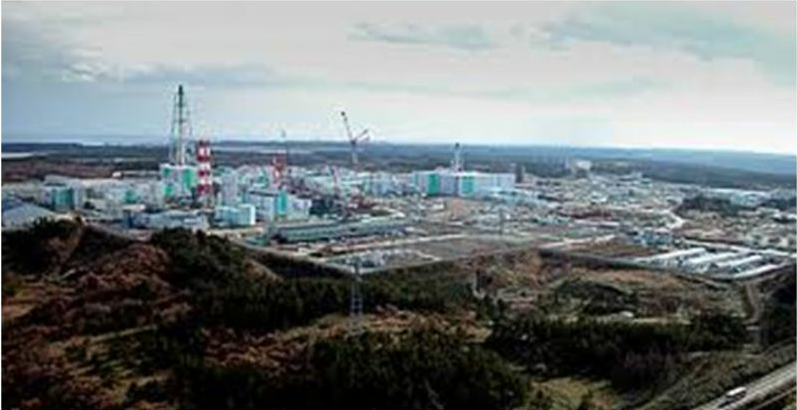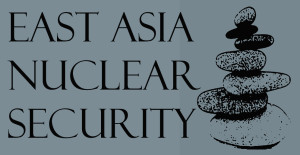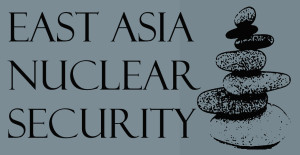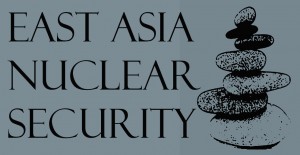Special Reports are longer, often more technical, documents consisting of entire articles, government statements, and other documents relevant to security and peace in Northeast Asia.
Plutonium and Japan’s Nuclear Waste Problem: International Scientists Call for an End to Plutonium Reprocessing and Closing the Rokkasho Plant

Piers Williamson offers this summary of the lectures given May 31st, 2012 by Professors Frank von Hippel (Princeton University) and Gordon MacKerron (University of Sussex) on the problems associated with reprocessing nuclear spent fuel. Williamson states that two things were made clear at the event: first, spent fuel reprocessing originates from the production of weapons materials and the initial move nations made towards reprocessing was spurred by wishes to gain nuclear weapons capabilities. Although Japan does not possess nuclear weapons, its large plutonium ‘stockpile’, combined with its advanced technological base, means that it could establish a nuclear weapons program very easily. Second, there has been a global move away from using plutonium for nuclear fuel and also from civilian reprocessing (plutonium separation). Japan’s persistence in reprocessing thus bucks an international trend. Arguments that it is impossible to stop appear flimsy when the global experience and the UK case are taken into account…Put simply, reprocessing is defunct and should be buried with the waste it cannot handle.
Piers Williamson is a research assistant to Professor Andrew DeWit at Rikkyo University.
Go to the articleRegions That Say No: Precedents and Precursors for Denuclearizing Northeast Asia

In the following report Michael Hamel-Green reviews the historical and institutional precedents supporting recent proposals to establish a nuclear weapons free zone both on the Korean Peninsula and in the wider Northeast Asian region. “Despite the fact that the Northeast Asia…has not yet progressed to government-to-government negotiations on a regional nuclear free zone concept, or even agreement in principle on such a concept…the negotiation history and background of the six currently established [Nuclear Weapons Free] zones suggest that there is often a quite lengthy pre-negotiation phase in which civil society campaigns, Track 2 negotiations and proposals…and catalysing changes or crises …can serve to concentrate the minds of regional governments and the wider international community.”
Michael Hamel-Green is the Dean of and Professor in the Faculty of Arts, Education and Human Development at Victoria University, Melbourne.
This report was originally presented at the East Asia Nuclear Security workshop held on November 11, 2011 in Tokyo, Japan.
Go to the articleAchieving an International Environment to Enable a Reduced Role for Nuclear Weapons

Abe Nobuyasu assess the possibility of creating an environment in Northeast Asia that could facilitate the withdrawal of U.S. extended nuclear deterrence to Japan and South Korea. Achieving such a goal mandates that several outstanding regional issues are addressed. These include: the territorial disputes over the Takeshima/Dokdo and Senkaku islands, the long-standing tensions across the Taiwan Strait, and North Korea’s continued nuclear weapons program. Were these issues to be addressed, Abe asserts that a regional security framework—such as a Nuclear Weapons Free Zone—may be possible. He warns, however, “for this Nuclear Weapons Free Zone to materialize, North Korea has to give up its nuclear program…the chances of its realization are equal to that of denuclearizing North Korea.”
Ambassador Nobuyasu Abe is currently the Director of the Center for the Promotion of Disarmament and Non-Proliferation at the Japan Institute of International Affairs. Ambassador Abe has served as Consul-General in Boston, as Ambassador to Austria and Saudi Arabia, and as a diplomat for the Japanese government, the U.N., and other international organizations in Washington, D.C., Geneva, Tel Aviv, New York, Manila, and Bern.
This report was originally presented at the East Asia Nuclear Security workshop held on November 11, 2011 in Tokyo, Japan.
Go to the articleConventional Deterrence and Japan’s Security

Shinichi Ogawa explores the probability of Japan heightening its conventional deterrence capabilities and the possible ways in which it may do so. His report first evaluates how Japan might augment its defensive capabilities (and invest in offensive weapons) were it’s military relationship and security guarantees with the United States to dissolve. He then assesses possible changes to Japan’s conventional military capabilities were the United States to maintain its ‘nuclear umbrella’ over Japan–and whether or not this arrangement could be compatible with a Northeast Asian Nuclear Weapons Free Zone.
Shinichi Ogawa is a visiting professor at Ritsumeikan Asia Pacific University.
This report was originally presented at the East Asia Nuclear Security workshop held on November 11, 2011 in Tokyo, Japan.
Go to the articleChina and a Nuclear Weapons-Free Zone in Northeast Asia

Pan Zhenqiang states that both North Korea’s weapons program and US deterrence create an atmosphere of distrust and insecurity in Northeast Asia. Pan argues that establishing a regional NWFZ “has to be a multilateral, comprehensive, and cooperative process, aimed first and foremost at improving the security environment, and strengthening the political basis for a nuclear free arrangement that will take into consideration the security interests of all the countries concerned, and thus be acceptable to all of them. There is no alternative to such a multilateral, comprehensive, and cooperative approach to resolving the DPRK nuclear crisis, and US [deterrence] as well, thereby effectively removing the two major obstacles to the NWFZ in Northeast Asia.”
Major General Pan Zhenqiang (retired) is deputy chairman of the China Foundation for International Studies, senior adviser to the China Reform Forum, and director of research at the Institute for Strategy and Management of the Central University of Finance and Economics in China.
This report was originally presented at the East Asia Nuclear Security workshop held on November 11, 2011 in Tokyo, Japan. All of the papers and presentations given at the workshop are available here, along with the full agenda, participant list and a workshop photo gallery.
Go to the articleExtended Deterrence in the Japan-U.S. Alliance

Ken Jimbo assesses the dynamics of U.S. extended nuclear deterrence in Asia–especially on the Korean peninsula and in China–and how these relate to Japan’s “dynamic defense” policy adopted in the 2010 National Defense Program Guidelines. He states that “[s]ince the strategic landscape in Northeast Asia is increasingly complex in character, it is difficult to apply the concept of deterrence in a “one-size-fits-all” manner. For extended deterrence to succeed, the Japan-U.S. alliance needs continuous updates on the assessment of the distribution of powers and threats, then to apply tailored deterrence to the regional dynamic.”
Ken Jimbo is an Associate Professor at Keio University, Japan.
This report was originally presented at the East Asia Nuclear Security workshop held on November 11, 2011 in Tokyo, Japan. All of the papers and presentations given at the workshop are available here, along with the full agenda, participant list and a workshop photo gallery.
Go to the articleNWFZS and Extended Nuclear Deterrence: Squaring the Circle?

Jayantha Dhanapala states that a Nuclear Weapons Free Zone (NWFZ) in Northeast Asia could prove to be a reasonable solution to the complex issues in the region, but that the exceptions and ambiguities that have been allowed during past negotiations of NWFZs must be avoided. Dhanapala argues that compromising on fundamental NWFZ principles—namely that all parties must verifiably dismantle any nuclear weapons and rescind extended nuclear deterrence agreements with Nuclear Weapons States (NWS)—will only exacerbate security concerns.
Jayantha Dhanapala is a former Ambassador of Sri Lanka and a former UN Under Secretary-General for Disarmament Affairs.
This report was originally presented at the East Asia Nuclear Security workshop held on November 11, 2011 in Tokyo, Japan. All of the papers and presentations given at the workshop are available here, along with the full agenda, participant list and a workshop photo gallery.
Go to the articleThe Six Party Talks and Implications for a Northeast Asia Nuclear Weapons Free Zone

Chung-in Moon asserts that the Six Party Talks (SPTs) mechanism and the idea of a Northeast Asia Weapons Free Zone (NEA NWFZ) are mutually complementary and should be pursued in parallel. While the SPTs are designed to deal with the North Korean nuclear problem, they cannot address the other nuclear-related challenges the Northeast Asian region is currently facing, including enrichment, spent fuel management, waste disposal, reactor safety and emergency management. Likewise, without addressing the North Korean nuclear program, regional cooperation on these issues is unlikely.
Chung-in Moon is a professor of political science at Yonsei University and a former Ambassador for International Security Affairs at the Ministry of Foreign Affairs and Trade, Republic of Korea
Go to the articleThe Politics of a Korea-Japan NWFZ

Leon V. Sigal provides an overview of political prospects for establishing a bilateral Korea-Japan Nuclear Weapons Free Zone (NWFZ). He notes that such an agreement necessarily raises the question of Japanese and South Korean reliance on US extended nuclear deterrence and “the outcome of any reconsideration thus depends critically on Japanese and South Korean views of North Korea’s nuclear arming, China’s rise, and their historical differences with each other.” Sigal concludes that, while an unbounded North Korean nuclear program could strengthen the nuclear radicals in Tokyo and Seoul who favor nuclear arming, nuclear conservatives in both countries might see heightened advantages in negotiating a NWFZ to help forestall a regional nuclear arms race and improve bilateral relations.
Leon V. Sigal is director of the Northeast Asia Cooperative Security Project at the Social Science Research Council in New York.
Go to the articleDomestic Debates and Assessment of Extended Deterrence in South Korea: A South Korean Perspective

In the following report Jong Kun Choi reviews domestic opinions concerning US extended deterrence to the ROK—including recent debates on South Korea’s nuclear sovereignty— and the diverging perspectives on the issue in South Korean society. Choi argues that the ROK and the US must shift from extended deterrence to tailored deterrence. He concludes, however, that military deterrence (extended and tailored) is not sufficient for resolving North Korea’s nuclear program and weapons. Instead, South Korea and the United States should revive traditional postures of engagement towards the DPRK and exercise strategic patience in order to induce change from within.
Jong Kun Choi is an Assistant Professor in the Department of Political Science and International Studies at Yonsei University.
This report was originally presented at the East Asia Nuclear Security workshop held on November 11, 2011 in Tokyo, Japan. All of the papers and presentations given at the workshop are available here, along with the full agenda, participant list and a workshop photo gallery.
Go to the article
